In Kashmir’s ongoing drug menace, spreading like an epidemic, the focus remains on the addict, the ‘victim’ of the crisis. Babra Wani met the families of some of these addicts to report the costs that a member’s addiction exacts on them.
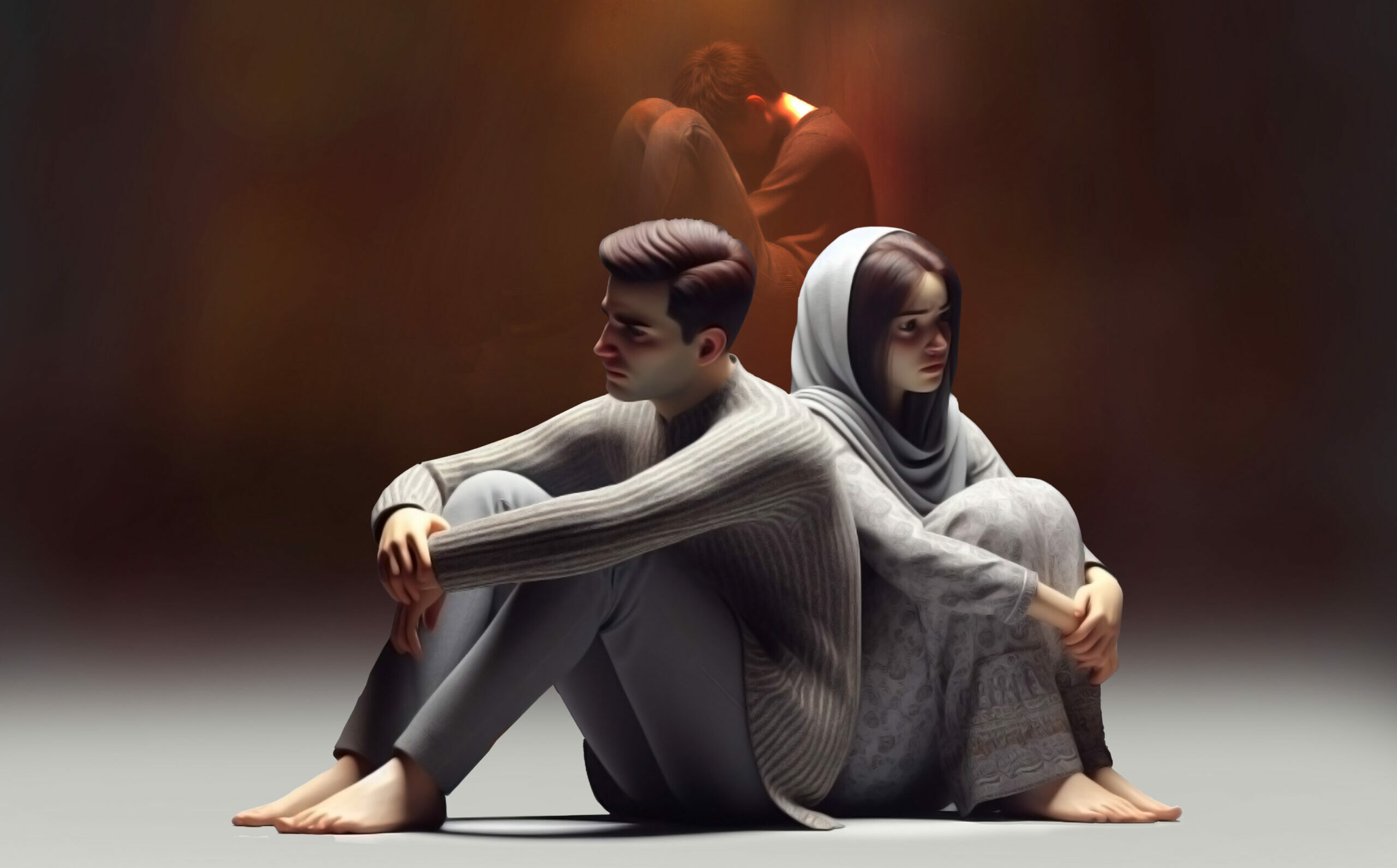
Mariya, 26, a Central Kashmir resident, possesses an inspiring yet emotionally wrenching story. At 20, Mariya and her family stumbled upon a bitter truth that would forever alter their lives and bonds.
One day, while taking a stroll, Mariya and her mother made a horrifying discovery – their son had been arrested for drug abuse. Panicked, they rushed to the police station, only to face the grim reality. Ammar, the youngest in the family and Mariya’s little brother had been arrested for drugs.
The revelation hit them like thunder. “I felt numb. There was a constant ringing, drowning out all voices,” Mariya recalled, emotions raw. Since then, Mariya has stayed silent, her face expressionless. “I have stopped expressing myself. I have seen a long, painful journey.”
Mariya revisited her story, reliving each moment that scarred her since that day.
Sadly, her story is not unique. Many share the plight of unfortunate fathers like Abdul Rahman, whose children fall prey to drug abuse. Reports show Kashmir has surpassed Punjab in addicts. Victims include not just users but families, especially parents, siblings, and spouses. The family gets trapped in suffering. “It is not one person needing help, it is the entire family that gasps for support,” said, Abdul Rahman.
Victimised Families
A general impression suggests when narcotics get into a family, it is the person who consumes the drugs, who is the victim. That is just part of the larger victimhood the family lands in. It takes a long time to detect a member of the family is addicted. By the time, they get the shocking revelation; a lot of things have taken place.
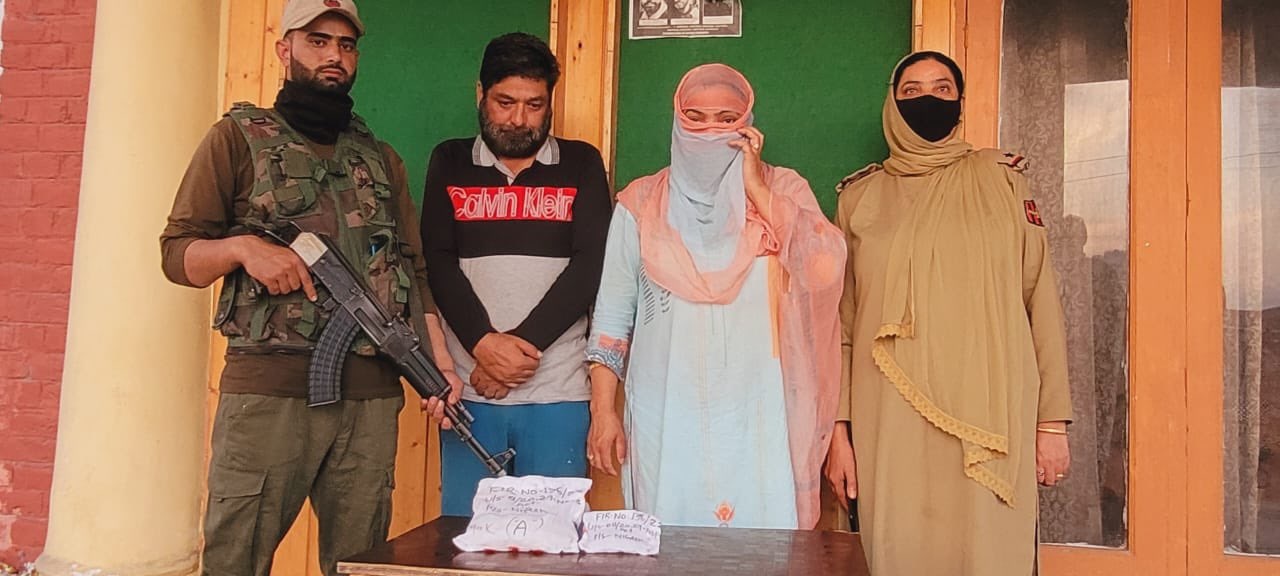
Most of the families said that they would observe the precious items at home going mysteriously missing. The addict gets very demanding and requires a lot of money for one or the other reasons. Soon, the ATM cards disappear and when the family reaches the bank, they get the shock that the account is literally at zero-balance.
The worst thing is when some relatives, close friends and acquaintances approach the family to seek “the money” that their ward had loaned for a few days. In certain cases, the worst part is when the police visit them seek details about their ward and break the news that they have an addict at home. In the worst of the worst cases, the family gets into a sort of mourning when they come to know how their addict daughter was abused by drug suppliers and smugglers.
This situation eventually pushes the desperate family to the next level of battle – to take their ward to the hospital, get him de-addicted and take care of him. This is a long gruelling exercise and the worst phase of managing the addiction case in the family. They have to stay on guard to ensure it does not relapse.
By the time, both the phases are successfully over, the family is literally on the road. It delays marriages, home repairs and reconstructions and in many cases the desire of elders to go for the Mecca pilgrimage. For most of their life, they live with the taint that impacts the marriages of their daughters and sons.
The Father
Abdul Rahman, mid-fifties from South Kashmir, considers himself both fortunate and unlucky due to his son’s addiction. In September 2019, during the Article 370 blackout, Rahman got a harsh awakening.
One evening after prayers, his son Muazam approached as Rahman sat in his room. His instincts sensed something wrong. “The father in me persistently thought something was off,” Rahman said. In the next room, the father and teenage son had a pivotal conversation that would profoundly impact both.
“Baba, I am hallucinating from drugs. Help me repent,” Muazam’s words stunned Rahman. “I felt numb,” he recalled, eyes moist.
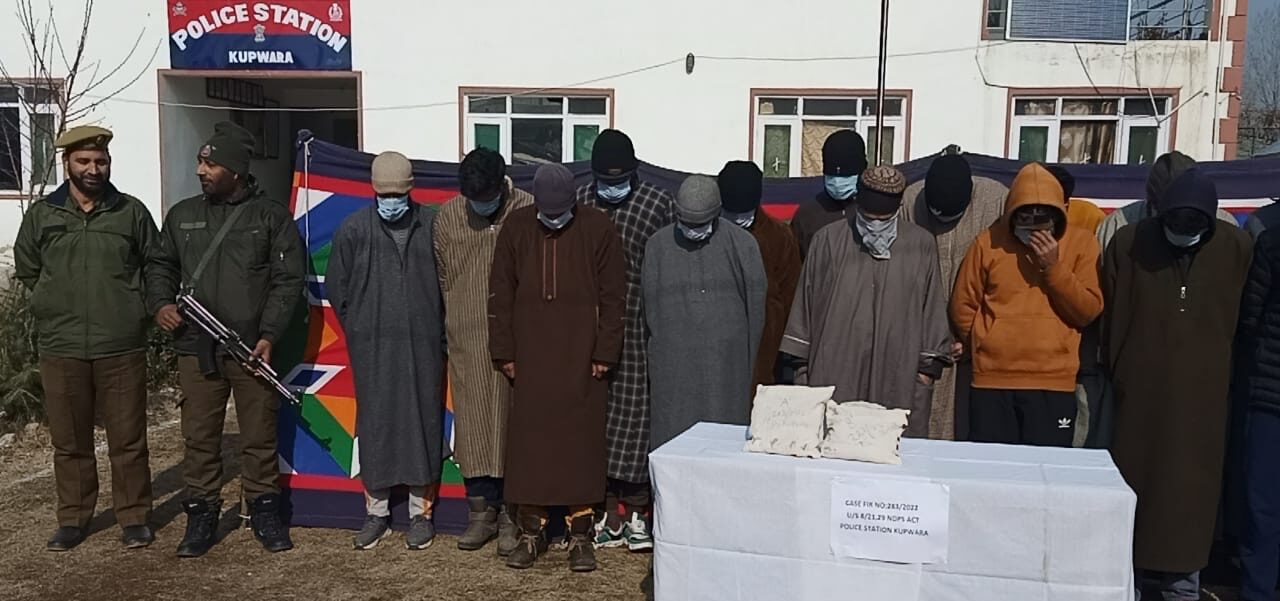
Four years later, Rahman vividly remembers that exchange. “My son did not just confess; he confided in me. He wanted my help.” Rahman kept it all secret. None of the family knows, even now.
Muazam had fallen into addiction under friends’ influence, using for two years. Hallucinations made him turn to his father and confess. “He told me everything, sobbing. He begged for help. I had no idea about treatment or mental health – taboo topics,” Rahman said.
Discovering this, Rahman felt angry, frustrated, helpless and near tears. “It left me numb.”
With no medical knowledge, Rahman extracted a promise – no matter the past, it could not be reversed, but he wanted Muazam’s word never to do it again. Coming to him was a sign from Allah to break free. Rahman asked him to perform ablution so they could pray.
Both cried during prayer. “That was when Allah placed love and realisation in my son, making him understand he was wrong,” Rahman said.
Rahman has questioned himself since then, wondering why his son tried drugs and if he failed as a father. Now he keeps a watchful but hands-off eye on his kids. “I want them to know I am involved, not controlling.”
He says his son still smokes but not weed or heroin. “I tell him to quit but am not forcing him. Quitting harder drugs is an accomplishment.”
Rahman sees the confession as a blessing, albeit challenging. “Without it, I may never have known. Allah wanted him to break free.”
It left Rahman fearful for his kids. “When I hear of terrible incidents, my heart sinks,” Rahman said, referring to the frequent reports of sudden cardiac arrest and deaths of the young men. “We could have been that news if my son had not sought help.”
The Unfortunate Ones
While Rahman’s story had a happy ending, others like Ghulam Nabi are less fortunate. Nabi’s 22-year-old youngest son is a drug addict.
“My elder son started first, about seven years ago. My younger followed in everything, including drugs,” Nabi said.
Nabi discovered syringes and a white substance in their room. “I was petrified and furious. I slapped my elder son hard,” he recounted. “I shouted uncontrollably. My wife tried calming me but I would not listen.”
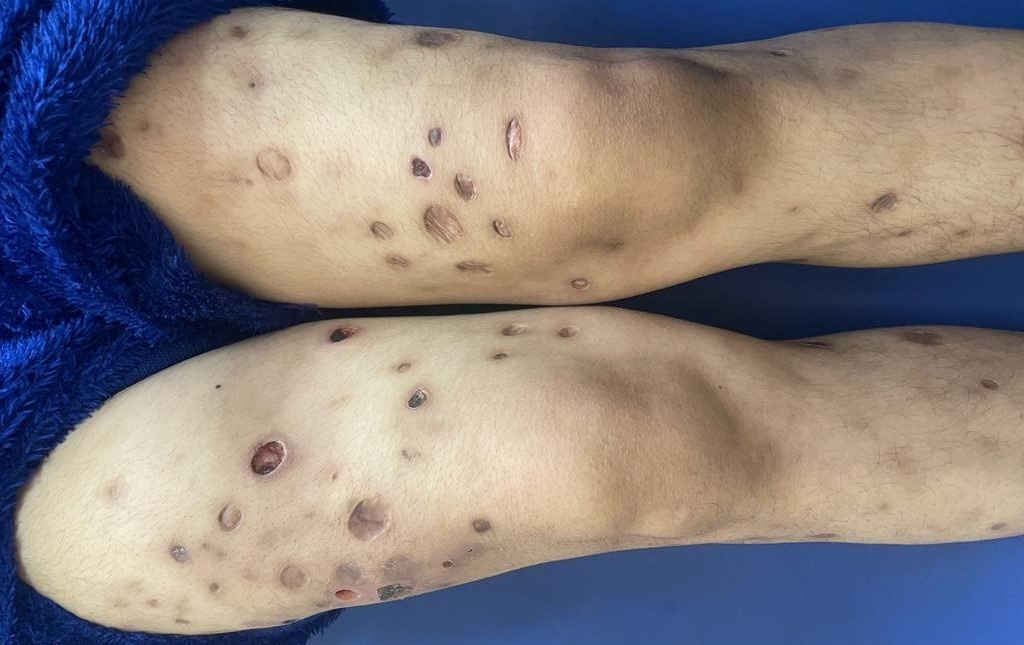
Nabi asked his elder son about the impact of his conduct on his and his brother’s lives. The younger son, fifteen then, had also fallen into addiction. “I started the elder’s treatment but the younger’s news devastated me. I felt my back snap.”
Every day brought new revelations. Much money spent on drugs had been stolen from Nabi’s shop.
“It is not the money; it is knowing my sons became thieves at home,” Nabi emphasised. “We helped the elder but younger is harder. He quits a couple of months yearly then returns to it – his routine for seven years. My wife and I live in constant turmoil.”
Nabi tries to rescue his sons from this scourge. “I have two children. Look at the younger one – he should be in his prime but he is skin and bones, no degree or certificate. He is ruined, so am I, because he is my son,” Ghulam Nabi said, almost crying. “I am witnessing his destruction and feel helpless. No matter how tired or angry I am, I cannot stop. A father’s fight continues until recovery, even if until my last breath. I will keep trying.”
Fathers are seen as tougher and stricter but reveal their paternal sides in such circumstances, as stories are woven. Likewise, other family members bear the brunt, like Mariya, who held her ground to prevent the family from falling apart.
The Sister
After realising her brother’s addiction, Mariya became the family’s pillar, combating this “family evil.” Despite only being three years older than her brother, she played a crucial role in his recovery.
“I had to care for my brother and ailing mother,” she recalled. “When my mother learned of his addiction, she fell seriously ill. It is natural because she is his mother.”
As the eldest daughter, Mariya researched drug addiction and treatments. “I read everything online about drug abuse. Then, we started my brother’s treatment.”
Watching his health deteriorate took a toll. “He is my only sibling, incredibly close. Seeing him like that shattered me. I relied on him for support, and it was breaking down.”
Recovery was long and arduous. “We all suffered together.”
Often, Mariya obtained medicines alone because her parents were unwell. “I faced judgmental eyes, whispers, taunts, obscene comments, unwanted attention.”
People told Mariya’s father to focus on her, as his son had slipped away. “They said, ‘Who will marry your daughter now? Let her study and support you in old age.’ People made insensitive comments during those sensitive times without thinking.”
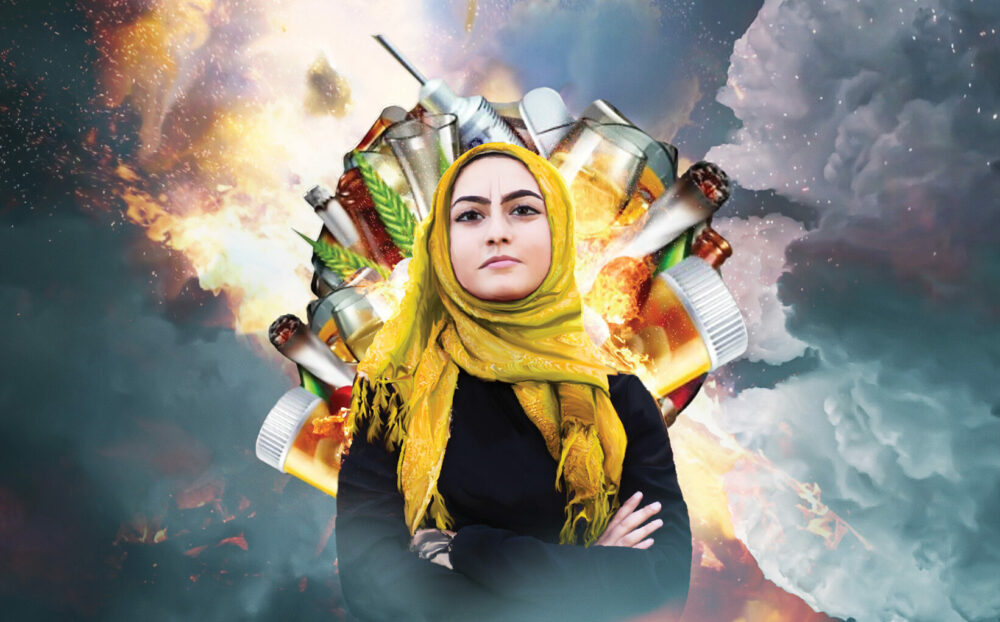
The experience left Mariya mentally unstable. “Sometimes I feel so overwhelmed. I want my life to end. I see a lost version of myself in the mirror.”
Mariya continues struggling to set things right. “I must hold this family together because Ammar’s addiction has scarred and scared each of us. My mother has stopped talking, my father has become short-tempered, my brother has suffered so much, and me…” A tear rolled down her cheek.
Mariya has faced struggles from the incident but stays silent. “I rarely smile, go out, or make friends. Responsibilities have doubled because of everything.”
She recently completed her Master’s at the University of Kashmir and wants work-from-home opportunities to care for her recovering brother and unwell parents. “I hope and pray nobody experiences a fate like mine. I sincerely pray for that.”
A Similar Crisis
Sehar’s story is similar and not very different. Sehar, 25, from South Kashmir, comes from a very poor family and is the eldest of three siblings. Her parents work tirelessly to earn a living, and she assists them.
“We were a happy family with what we had. We were all hardworking,” she said. “But things changed when we learned of our brother’s substance abuse. Everything changed, especially our lives.”
Sehar’s tenth-grade brother Rahil had fallen victim to drugs. “Rahil started using for fun with friends but quickly became an addict,” Sehar explained.
Shocked upon realising this, blame began. “All relatives and neighbours blamed me, my sister, and my mother. Even our father started taunting us, saying we could not care for our only brother.”
The allegations left the women distressed. “It added to our misery, but that was just the beginning.”
Rahil grew angry and violent without money. “He used to hit us all. Rahil would steal from us, and when he could not find money, he would angrily demand it, often violently.”
The women bore the brunt: Rahil on one side, their father on the other, and the world “emotionally attacking us” too. Rahil, the only son, was always favoured. “We never uttered a word, but when they blamed us for his situation, I started falling apart.”
Sehar’s mental health deteriorated. She developed anxiety, panic attacks and low tolerance. “I became completely intolerant.”
Rahil was taken to a rehabilitation centre, and the family hoped and prayed for recovery. “He was the whole world to our parents, and we love him dearly. If he recovers, everything will be fine.”
Rahil is undergoing treatment and showing improvement. Sehar has started seeking help for her mental health.
An Epidemic of Sorts
Like Sehar’s mother, countless mothers suffer daily from children’s drug addiction. Studies suggest around 67,468 people in Jammu and Kashmir are addicted to psychoactive drugs. Statistics show over 100,000 men and 30,000 women use cannabis, over 500,000 men and 8,000 women use opioids, over 150,000 men and 8,000 women misuse sedatives, and over 120,000 men and 7,000 women are addicted to inhalants.
The narcotics epidemic in Jammu and Kashmir is snowballing into a major issue as the generation in their prime is addicted. This has led law enforcement agencies to make battle against the drug smuggling and sale a top priority.
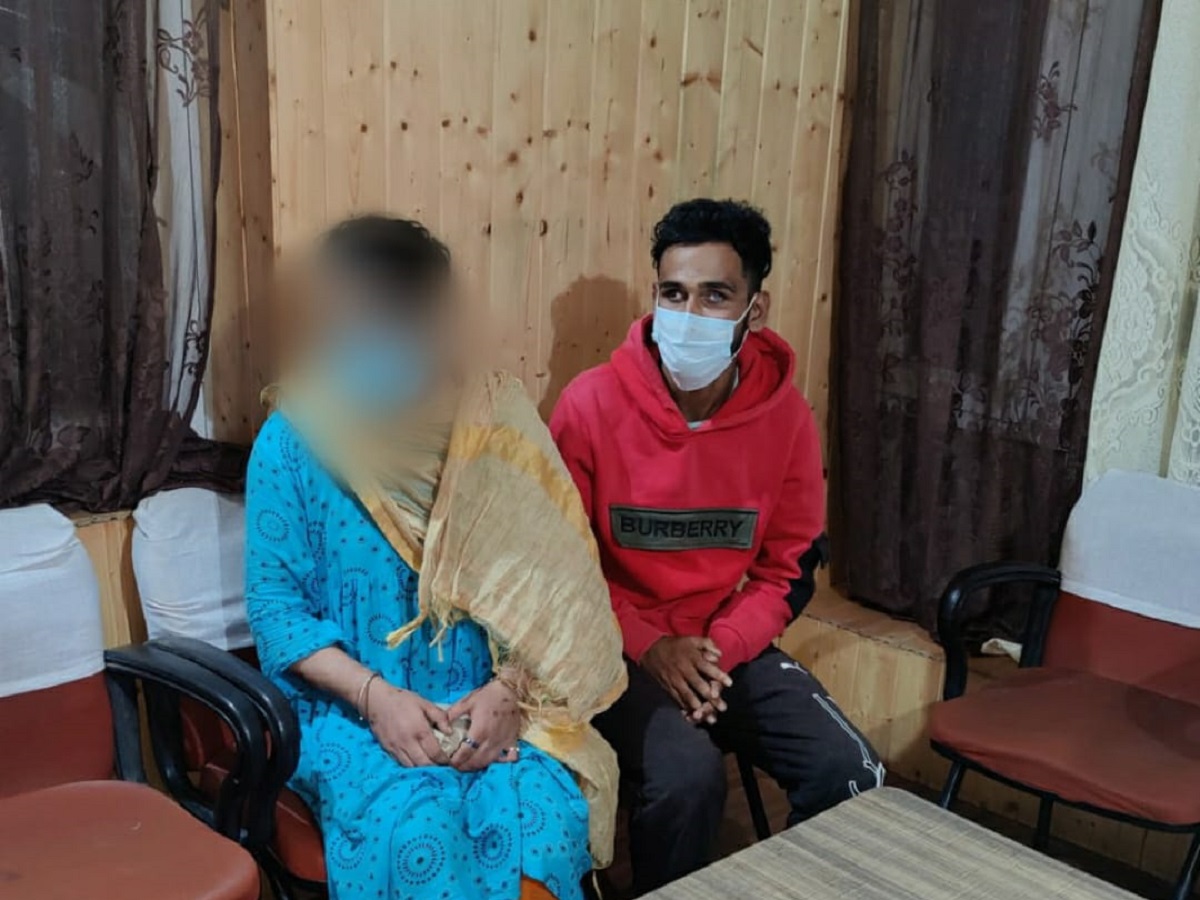
In 2023, nearly 2400 cases were registered under the Narcotic Drugs and Psychotropic Substances (NDPS) Act against 1659 cases recorded in 2022. The Jammu and Kashmir Police have been arresting drug smugglers under the Jammu and Kashmir Public Safety Act (PSA). In 2022, 191 individuals were booked under PSA and the number jumped to 250 in 2023. Now, four courts are being established to decide on the NDPS cases, given the huge volume of such cases in Jammu and Kashmir.
Currently, all the Principal District and Sessions Judges are dealing with the NDPS cases but the numbers are surging fast. Now, the Law Department has been asked to identify and set up special courts to tackle these cases on priority.
Since most of the psychotropic substances come from across the Line of Control, the police believe that in several cases the smuggling has links with militancy and terror funding.
RR Swain, the Director General of Jammu and Kashmir Police recently said that they are treating the drug smuggling almost on the pattern of terrorism. “Narcotics is a poison,” Swain told reporters in Kathua. “It does not grow here but comes from across. Funds generated from narcotics are being used to finance terrorism in Jammu and Kashmir. We will be doing a massive mapping and categorising the narco-dealers like we have classified terrorists in A, B, and C categories.”
Off late, the police have started attaching the properties of the drug smugglers as well. Recently, the police attached the property including the house of Bashir Ahmad Tramboo and his wife Shahzada Bano in a Pulwama village. In Handwara’s Amargarh Tarathpora, police seized the house of Mohammad Gulzar Mir insisting the property was created with the income from drug smuggling. In Degwar Tarwan of Poonch, the police attached two major properties of a drug smuggler. Some properties in Baramulla were also attached.
As the law and order machinery is fighting the drug menace and an attempt is underway to improve the drug de-addiction infrastructure, the crisis is taking a huge toll on families. Drug addiction’s impact on families is immeasurable, causing relationship tension, financial hardship, and increased abuse risk, with mothers often bearing the brunt.
The Mother
Shehnaz, a mother, considers herself unlucky as both her children got involved in drug addiction. For her, life has become a doomsday scenario, with her family falling apart.
“My husband would not help our boys anymore. He has given up,” she said, tears welling. “But I am their mother, I cannot give up. They are my flesh and blood. How could I give up?”
Determined to fight for their recovery, Shehnaz, a resident of North Kashmir accompanies her children to a rehabilitation in Srinagar. They wish to hide their struggles to avoid judgment.
“My children will face harsh comments if people know,” Shehnaz explained. “Three years ago I knew nothing of addiction until my children were declared addicts. Now I am well-versed.”
She revealed her children, 20 and 18, fell into addiction due to bad company, and wrong choice of friends. “I often warned them, but they did not listen,” she regretted.
The family learned of the boys’ addiction through a cousin. Shehnaz described their world as crumbling that day. She has tried piecing things back together since. “I am doing everything to get back to normal, although we never will,” she said. “The boys’ health is deteriorating, and my own mental and physical health is challenging. I am 50 but feel 100.”
Despite challenges, Shehnaz remains optimistic. “I may not be the best mother, but I am trying to be better. I will do whatever a mother can to help them.” Her sons are in treatment and determined to overcome addiction. “We are doing this for our mother; she is trying very hard,” they said.
In saving her children, Shehnaz has sacrificed herself, knowing mothers who have lost children to drugs. She would not ponder that possibility. Shehnaz is among mothers fighting relentlessly for children’s recovery, while countless others tragically lose children to overdoses and more.
While familial relationships suffer, leaving families traumatised and fractured, non-familial ones like friendships also bear the brunt.
A Friend
Sameer lost his 19-year-old friend to addiction – a tragic event that left an indelible mark on him. “He battled addiction for a long time,” Sameer revealed. “His family sent him to a rehabilitation centre where he took his life.”
Losing his friend led Sameer to have nightmares and withdraw socially. He also found two childhood friends struggling with addiction. “I advised them to leave the habit but they did not listen,” he lamented. Their potential fate weighed heavily, frequently giving Sameer nightmares of them passing away.
Initially, Sameer distanced himself from his addicted friends but realised it would not solve anything. He tried encouraging them to seek help but they did not listen. Ultimately, he had to sever ties.
Sameer struggles with this decision. “Since cutting ties with my two closest friends, I have found no peace. I miss them greatly. My heart aches, my mind wanders, and I often feel guilty for abandoning them. But I had no choice but to end the friendships.”
All names have been changed.















